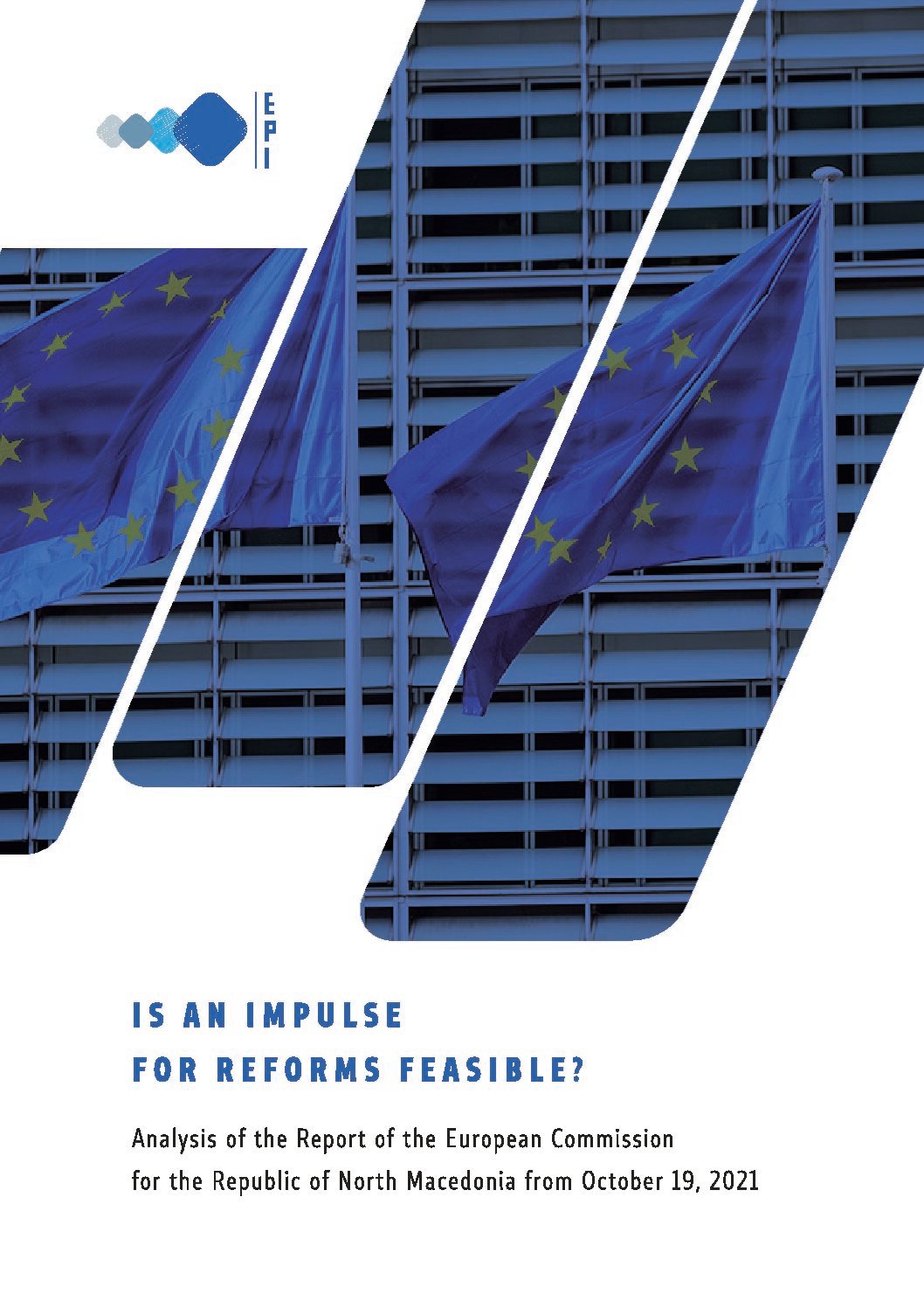Analysis of the Report of the European Commission for the Republic of North Macedonia from October 19, 2021
The publication of the Enlargement Package this year took place in the circumstances of continued focus on the COVID-19 crisis, highly pronounced geopolitical and geostrategic factors, evolving energy crisis, as well as re-emerging migration issues. Rifts over rule of law standards have been deepening in the EU, following a series of actions by the European Commission (EC) and judgments of the EU Court of Justice (CJEU) against Poland and Hungary, noted in the EU annual Rule of Law Report.1 Such trends in the EU have a serious impact on support for enlargement even in countries that have traditionally promoted this policy.
In this year’s Enlargement Strategy the Commission once again recommends the start of negotiations – to adopt the negotiating framework and to hold the first intergovernmental conferences with North Macedonia and Albania by the end of the year, arguing that the delay has a negative impact on EU’s credibility. Visa liberalization for Kosovo is also recommended again. The Commission proposed opening of two clusters with Serbia. No further steps have been proposed for other countries. The Commission is trying to take a move forward this year, after last year’s stagnation, when no country made any progress. The rather ambitious statements by the President of the EC, Von der Leyen, during her September visit to the region before the announcement of the Package, created a pretext for these developments. Less ambitious was the attempt of the Member States to maintain the momentum of the process at the EU-Western Balkans Summit held in Brdo, Slovenia. This Report comes at a time when the accession process of North Macedonia is “captured” by the blockade imposed by Bulgaria, which completely overshadows the conditions and reforms arising from the obligations of membership, i.e. the adoption of the EU acquis.
In these circumstances, the risk of further weakening of the EU’s transformational power of the accession is extremely high. This risk is especially high in our country, which has been in the SAA process for two decades, but is also present throughout the region. In addition, the previously widespread opinion that the European Union acts as an actor that contributes to democratization in the candidate countries is questioned.

